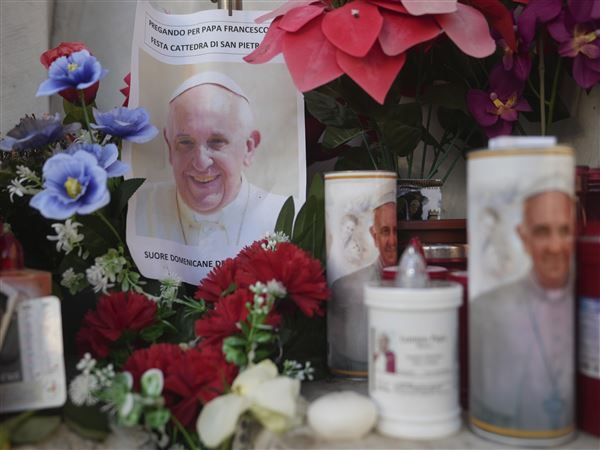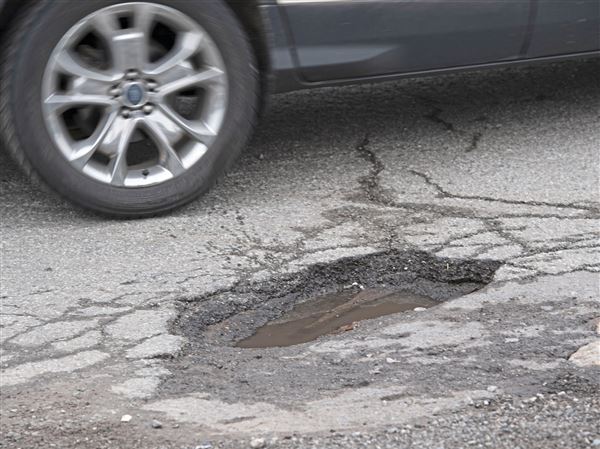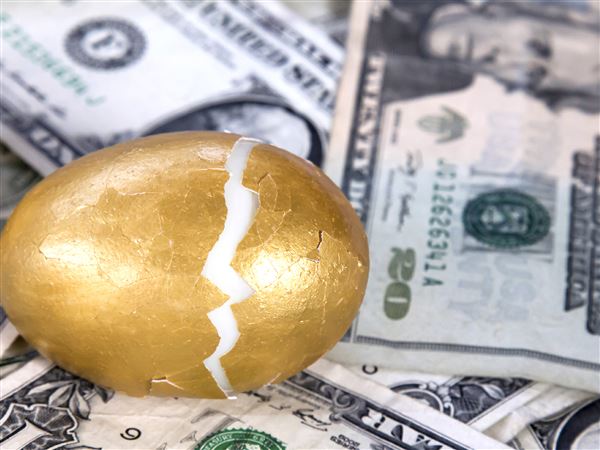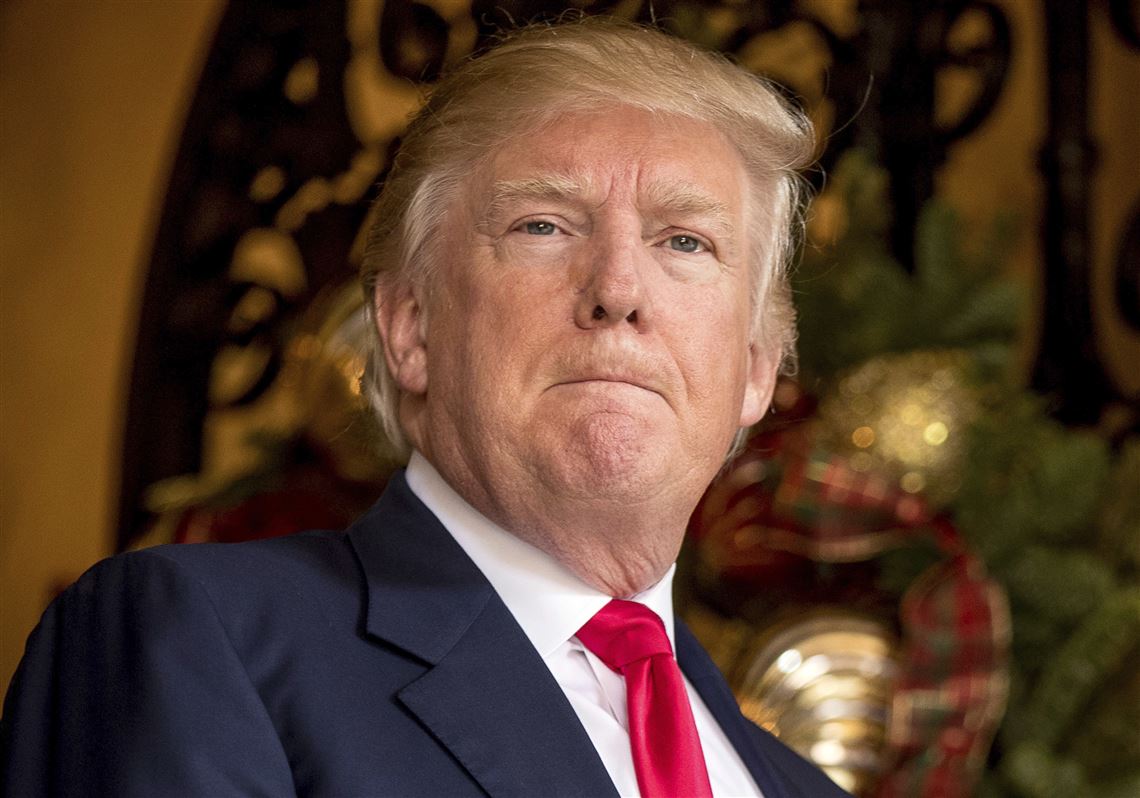Donations to charity always peak during the traditional holiday giving period that stretches from Thanksgiving to New Year’s Day.
But — coming on the heels of this year’s surprising and historic presidential election — experts on giving say year-end contributions are being accelerated by uncertainty about federal policy changes that could occur under the administration of President-elect Donald Trump.
Among the factors driving the surge are Mr. Trump’s proposal to cap itemized tax deductions, including charitable contributions, and a flood of gifts to advocacy organizations that oppose his policies on hot-button issues such as gun control and abortion.
“It’s kind of a perfect storm for charitable giving,” said Yvonne Maher, senior vice president of development and donor services at the Pittsburgh Foundation. “You have a really strong stock market, lots of appreciated securities and the proposed cap on charitable deductions.”
The Pittsburgh Foundation controls more than $1 billion in assets allocated to nonprofits in the region for initiatives ranging from education to arts, culture and critical needs like feeding the hungry.
While it’s not unusual to have about 60 percent of its annual contributions donated in the last quarter, Ms. Maher said, this year’s flow “has been incredibly busy.” She expects donations of about $15 million during the last two weeks of December — most of it to new and existing donor-advised funds.
Donor-advised funds, administered by public charities, provide an immediate tax deduction and allow donors to suggest where their money is directed. Cash and securities can be allocated to the funds.
Because Mr. Trump has proposed capping tax deductions at $100,000 for single filers and $200,000 for married or joint filers, creating or adding to a donor-advised fund now “is taking some of the risk out” of losing future write-offs, Ms. Maher said.
For those who itemize deductions on their federal returns, the Internal Revenue Service currently allows charitable contributions of up to 50 percent of adjusted gross income. There are exceptions, including gifts to some private foundations, veterans organizations and fraternal groups, that are limited to deductions of 30 percent of adjusted gross income.
Eileen Heisman, president and chief executive at the National Philanthropic Trust in Jenkintown, Montgomery County, said there’s no guarantee the proposed Trump cap on deductions will become law, but as a cautionary step, many high net worth individuals in particular are turning to donor-advised funds.
“With the stock market being so high, this is a good time to store some money,” said Ms. Heisman, whose trust manages about $3 billion in charitable assets.
Charity Navigator, a nonprofit that evaluates and rates other nonprofits and charities, estimates individual donors will pledge more than $100 million to nonprofits this giving season.
That’s about the same estimate as 2015, but the organization has seen anecdotal evidence of an uptick following a spike in post-election donations to cause-based nonprofits and because of fears that the new administration will cap deductions.
“Yes we’ve seen both. But we won’t have hard data to confirm that until the end of the giving season,” said Sandra Miniutti, vice president, marketing for Charity Navigator in Glen Rock, N.J.
The extent to which fears about losing tax deductions will impact giving is tough to gauge, said Steve MacLaughlin, vice president of data and analytics at Blackbaud, a Charleston, S.C., company that tracks giving trends and develops software and services including fundraising tools for nonprofits.
“Even if there is a change to tax policy, the likelihood of it happening isn’t until 2017 or 2018, so the reaction from the typical donor is down the road,” he said.
Cause-based nonprofits see surge
Among progressive organizations that have seen an uptick in contributions, Planned Parenthood — which Mr. Trump has pledged to defund — reported it received 80,000 single donations in the three days immediately following the Nov. 8 election.
The American Civil Liberties Union said it received $1 million beginning on election night until its website crashed the following day.
Shortly after the election, a group of technical and creative designers across the country launched a new site, www.RageDonate.com, where donors can contribute to various nonprofits that advocate for groups that feel threatened by the new president.
Last month on Giving Tuesday, an initiative launched five years ago to counter the commercialism of Black Friday and Cyber Monday, online contributions to charities totaled $168 million, up 44 percent from 2015.
While organizers of the annual fundraising event — held annually on the Tuesday after Thanksgiving — don’t break out where donations went, Mr. MacLaughlin said many cause-based nonprofits “certainly received a higher number of donations than in years past.”
Among them is the South Side-based Women and Girls Foundation, which was flooded with calls starting immediately after the election, said Heather Arnet, chief executive officer.
“We’ve had an increase in people giving for the first time and longtime donors significantly increasing their gifts this year,” she said. “I think it’s because Trump made it very clear in his campaign that he was not a champion for women and girls’ rights. One supporter said she was adding a ‘Trump tax’ of 10 percent or more to all of her donations to organizations that support women.”
ACLU sees membership growth
At CeaseFire PA, a Philadelphia-based nonprofit that works to stem gun violence, Shira Goodman, executive director, said there has been a noticeable rise in end-of- year contributions and new donors, which she attributed to “concerns about the need for our work.” The president-elect was endorsed by the National Rifle Association and opposes most background checks for people who buy guns.
Though the nonprofit participated in Giving Tuesday, CeaseFire PA’s annual year-end fundraising appeal didn’t launch until Dec. 9, so Ms. Goodman said she doesn’t have data yet on year-end contributions.
Based on the increase in donations so far, “I think there’s some energy, intensity and concern about what the new administration means and what’s going to happen,” she said.
John Frisbee, director of philanthropy at the ACLU of Pennsylvania in Philadelphia, said that since the election, the nonprofit has experienced “an influx of new members and donors unlike anything in the history of the organization.” Nationwide, membership by mid-December was up nearly 50 percent from pre-election levels and rose 55 percent in the Pennsylvania affiliate, he said.
During the five days immediately after the election, the ACLU reported receiving $7.2 million in donations nationwide.
While the organization considers itself “nonpartisan,” Mr. Frisbee said, “Insofar as Donald Trump has proposed policies which would violate the Constitution, our success will be measured by our effectiveness in stopping the implementation of those policies.”
Joyce Gannon: jgannon@post-gazette.com or 412-263-1580.
First Published: December 24, 2016, 5:00 a.m.

















